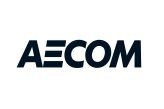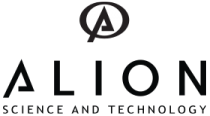Fundamentals of Today's U.S. Natural Gas Industry Seminar (Houston, United States - March 17-18, 2020) - ResearchAndMarkets.com
The "Fundamentals of Today's U.S. Natural Gas Industry" conference has been added to ResearchAndMarkets.com's offering.
This comprehensive and clearly explained program is for professionals who are seeking an understanding of today's North American natural gas industry and want to be up and running to make intelligent and prudent trading and buying decisions.
Learn how the production/transportation/delivery infrastructure works and how deals are done. Know who the natural gas market participants are and how commercial transactions occur along each segment of the value chain. Understand and apply your knowledge of how the wholesale natural gas and transportation markets operate and where the new opportunities are in today's dynamic natural gas marketplace.
You will be more confident and benefit from knowing comprehensive nuts-and-bolts fundamentals through understanding purchasing strategies that will manage risk and avoiding costly mistakes.
What You Will Learn
- A detailed understanding of all parts of the natural gas value chain, infrastructure components and how the natural gas industry operates across the value chain spectrum.
- What natural gas is, how it is created, the different "types" of natural gas based on various factors and sources, terminology, measurements, and conversions.
- The essentials of understanding how gas is used, by whom and what are demand drivers and related issues.
- The basics of natural gas production, drilling techniques and economic and market issues around production operations in different types of production basins that impact supply availability.
- What the unprecedented growth of unconventional gas supplies mean for the future of natural gas production and how it is changing infrastructures, pipeline flows, and delivery options.
- The issues and dilemmas the industry faces in obtaining supply from new production technologies and understanding what reserves are and the various definitions and estimation methods.
- The basics of gas gathering, operations, markets, and regulatory issues.
- What gas processing is, how it operates, Natural Gas Liquids extraction flows, and related economic issues in today's market.
- The importance of gas quality issues and the economic, operational and regulatory concerns about gas quality and the different concerns along the value chain about gas quality and interchangeability.
- The keys parts of natural gas pipelines, how pipelines operate, who the pipeline companies are and the significant issues pipeline face in a changing market.
- The importance of storage, the different types, operations, and storage development issues.
- How LNG terminals work and how North American supply developments are impacting the evolving markets for global LNG.
- Significant LDC physical plant-related operations, how they work, LDC economic and rate worries and regulatory trends in today's market.
- Who regulates what, where, how and why and how FERC and state utility commission policy, major Orders and regulations have evolved into today's "open access" environment.
- How natural gas delivery and storage is regulated across the value chain and how it continues to evolve in today's environment.
- Significant FERC regulatory initiatives, policies, and Orders that have transformed the industry and currently policy and regulatory issues that impact how the industry operates and the information it collects and disseminates.
- Evolving State regulatory concerns, issues and the changing role of state regulators.
- Overview of regulated rate components and rate design and new rate and policies on the horizon.
- The fundamentals of Rate Proceedings and how to understand capacity issues and pipeline tariffs, transportation services, agreements, and rates.
You Will Also Learn
- An overview of gas transportation, pooling, nominations, confirmations, scheduling, receipt and delivery point priorities and balancing through the delivery chain.
- What flow orders, allocations, penalties, interruptions, and curtailments are, and why they are important.
- The essentials of factors involved in bringing gas to market, transportation services and types, rates and rate components and tariff components.
- The changing dynamics of capacity markets with new production sources, pipelines, storage and LNG projects and the impacts on overall gas transactions, including commodity pricing, basis differentials, and pipeline capacity.
- Who the key commercial value chain participants are and how they manage their respective segments and their different objectives.
- How marketers put together and process deals through each step in the "Front, Middle and Back Offices".
- Natural gas pricing concepts and mechanisms and the essentials of locational basis, commodity pricing, and overview of the different types of price tools.
- The essentials of factors impacting price volatility and commodity price components.
- The major types of transaction risks, the fundamentals of price risks and risk assessment in commercial operations.
- How to apply pricing strategies, market prices, risk assessment and load requirements for gas procurement strategies and requirements.
Seminar Information
The seminar will start promptly at 8:00 AM and will finish at 4:00 PM on the first day. On the second day, the seminar will resume at 8:00 AM and will finish at 1:00 PM. The program includes continental breakfast, lunch, and coffee breaks. Attendees also receive a professionally produced seminar manual that can serve as a valuable office reference. Dress is casual for all seminars.
Agenda:
- Day One - Supply, Infrastructures, Operations and Regulatory Issues.
- Day Two -Transportation, Choice, Tariffs, and Pricing.
Speakers:
Jim Crist
President
Lumen Group, Inc.
Jim Crist is President of Lumen Group, Inc. headquartered in the suburbs of Pittsburgh. He has over 27 years experience in the energy industry covering coal, gas, oil, propane, and electricity. Jim has conducted many strategic studies of the industry and prepared market and business assessments for several large energy companies. Before founding Lumen Group in 1996, Jim spent 20 years working for major energy companies in engineering, technology development, rate and regulatory policy development and marketing. He served as marketing vice president in both regulated and deregulated entities. His consulting practice provides strategic planning, marketing and business development, and rate and regulatory consulting, along with serving as an expert witness in regulatory proceedings in several jurisdictions.
For more information about this conference visit https://www.researchandmarkets.com/r/fa0yyx
View source version on businesswire.com: https://www.businesswire.com/news/home/20200221005201/en/



